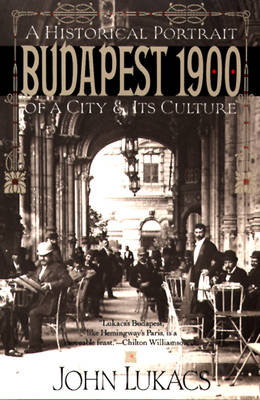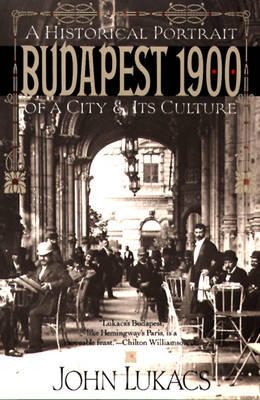
- Afhalen na 1 uur in een winkel met voorraad
- Gratis thuislevering in België vanaf € 30
- Ruim aanbod met 7 miljoen producten
- Afhalen na 1 uur in een winkel met voorraad
- Gratis thuislevering in België vanaf € 30
- Ruim aanbod met 7 miljoen producten
Zoeken
Omschrijving
"Lukacs's book is a lyrical, sometimes dazzling, never merely nostalgic evocation of a glorious period in the city's history. . . . {His} true sympathy lies . . . not with the famous expatriates, but with the writers and intellectuals who lived and died at home: the poets Endre Ady and Mihaly Babits; the novelists Ferenc Herczeg, Sandor Hunyady, Frigyes Karinthy, Dezso Kosztolanyi, Gyula Krudy, Kalman Mikszath, and Zsigmond Moricz; the political essayist DezsoSzabo; the playwright Erno Szep; the literary historian Antal Szerb; and others. . . . {John Lukacs} sets out to explain Hungarian literature to English-speaking readers. Though I have no idea whether or not he will succeed, few interpreters of Hungarian literature have made a more touching and eloquent attempt." -- The New York Review of Books
Specificaties
Betrokkenen
- Auteur(s):
- Uitgeverij:
Inhoud
- Aantal bladzijden:
- 288
- Taal:
- Engels
Eigenschappen
- Productcode (EAN):
- 9780802132505
- Verschijningsdatum:
- 1/02/1994
- Uitvoering:
- Paperback
- Formaat:
- Trade paperback (VS)
- Afmetingen:
- 172 mm x 217 mm
- Gewicht:
- 439 g

Alleen bij Standaard Boekhandel
+ 49 punten op je klantenkaart van Standaard Boekhandel
Beoordelingen
We publiceren alleen reviews die voldoen aan de voorwaarden voor reviews. Bekijk onze voorwaarden voor reviews.











